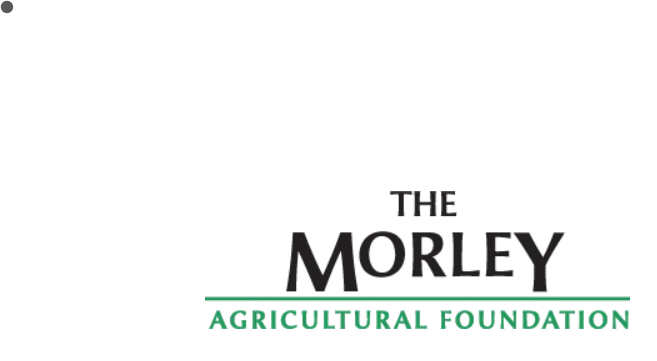In our first workshop of the season and as part of the Countryside COP programme we met to introduce YEN Zero and discuss productivity and land use as it relates to crops and GHG emissions, addressing the questions: What is the role of productivity in reaching net zero agriculture? How do we balance meeting food demand while protecting our environment? Should we be ‘sparing’ land for nature or ‘sharing’ our agricultural land with nature?

The Morley Agricultural Foundation is a charity that supports farming in the East of England by funding agricultural research, student studies, professional development of farmers and others and a variety of educational projects for school age children.
Recommended Content
Connected Content
Farm-PEP aims to bring together all the sources of useful knowledge for Agriculture, whether from academic science, applied research projects, industry trials, farmers own trials or simple on-farm experience. Listed below are useful websites, organisations and websites that we know of. Add any we've missed in the comments box or by adding as new content, or better still, as a new Group.
YEN Zero is a recently established network in the ADAS YEN Family, with the overarching aim of creating a net-zero community. It aims to bring key players from across the agricultural industry together to meet the industry’s target of achieving net zero emissions by 2040.
The intricate web of relationships between physical, chemical and biological soil components underpins crop and livestock health and productivity.
The challenges of food security, climate change and sustainable development present exciting opportunities for agricultural research and innovation. The NIAB Group is the UK’s fastest growing crop science organisation, having trebled in size over the past decade through a strategic programme of investment, merger and acquisition.
Building the right skills for the agricultural industry has been recognised as crucial to its future success.
The major commodity crops in the UK are wheat, barley, oilseed rape, field beans, sugar beet and potatoes, but around half of agricultural land grows grass.
Funding available for research and knowledge exchange in the UK comes from a mix of public, industry and charitable sources
Agricultural research is conducted by a range of organisations, from individual farmers, through advisors, distributors, manufacturers, charities, societies, supply chain companies, levy bodies, universities and research institutes. This page aims to connect across these often disparate sources.
Knowledge Exchange in Agriculture in the UK is diverse, with many organisations involved. That is part of the reason for creating Farm-PEP, to help provide connections to what many percieve as a fragmented landscape.
Professional development is an important part of a career journey - an opportunity for continuous learning, a way to stay up-to-date and to demonstrate relevance and expertise. Professional development activities can be completed in a number of different ways, from attending a training course, an event or a meeting to taking part in a webinar, listening to a podcast, reading an industry magazine or being a professional member of an organisation. Those on the BASIS Professional Register, FACTS Qualifed Advisers, RoSA sheep advisers and those on the Environmental Advisers Register are all required to collect a certain number of CPD (continuous professional development) points on an annual basis to demonstrate their commitment to enhancing knowledge and skills. For more information, please visit: https://basis-reg.co.uk/schemes.
An overview of the greenhouse gas costs of cropping, including an analysis of YEN data in lead up to establishing YEN Zero. Also includes an analysis of the relationship between nitrogen fertiliser, GHG costs, yield, GHG intensity and potential indirect land use change (ILUC) consequences. Part funded by the Morley Foundation.
This Topic doesn't yet have a Stewarded summary, but connected groups, content and organisations show below. Click the 'Ask to Join' button if you would like to be a Steward for this Topic and provide a summary of current knowledge and recommend useful resources, organisations, networks and projects. "Like" this Topic if you would like to see it prioritised for providing a wikipedia style summary.
An overview of the greenhouse gas costs of cropping, including an analysis of YEN data in lead up to establishing YEN Zero. Also includes an analysis of the relationship between nitrogen fertiliser, GHG costs, yield, GHG intensity and potential indirect land use change (ILUC) consequences.


